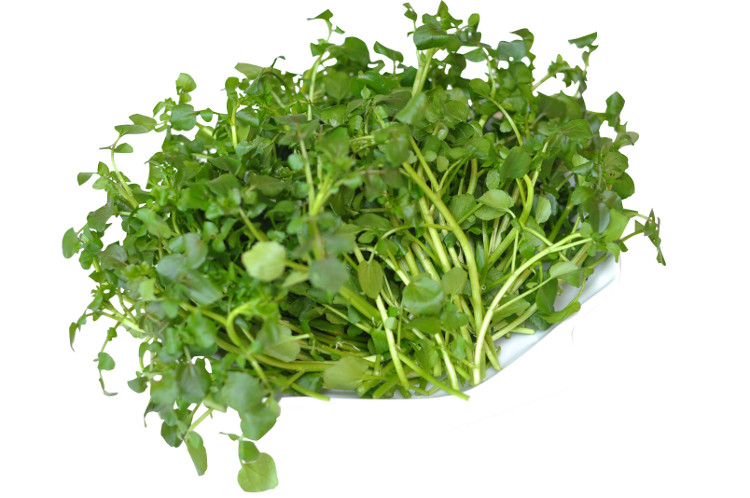Eating this vegetable every day no longer worries about cancer
According to a new study, eating watercress everyday can help you fight cancer.
Scientists at the University of Southampton (UK) said that volunteers who participated in the study, eating 80 grams of watercress each day significantly increased the amount of anti-cancer molecules in the body.
Watercress leaf extract is effective in inhibiting the growth of breast cancer cells. Pilot research shows that watercress can prevent the development of breast cancer and help patients avoid recurrence of the disease.
Watercress is listed as a "super food" for health benefits as well as protecting the body against disease.

Watercress can reduce the risk of prostate cancer in men, colon cancer, cervical cancer, and breast cancer in women .
The study, led by Professor Graham Packham of the UK Cancer Research Center at the University of Southampton, was published in the British Journal of Nutrition.
Experimental and clinical evidence that watercress can reduce the risk of prostate cancer in men, colon cancer, cervical cancer, and breast cancer in women, and prevent diffuse cancer cells to other organs.
This mechanism is achieved by glucosinolates , a biologically active substance in watercress. When we chew vegetables in our mouths, this substance is hydrolyzed to produce isothiocynates - the active ingredient with strong anti-cancer effects by interfering with the growth of cancer cells.
According to scientists, "This pilot study shows that eating watercress every day is an effective way to combat cancer risk."
Watercress contains more vitamins, iron, calcium, magnesium, manganese, zinc and potassium than broccoli, apples and tomatoes. The high content of vitamin C in cress leaves increases the anti-cancer effectiveness.

Watercress contains lots of vitamins, iron, calcium, magnesium, manganese, zinc and potassium.
The pilot study was conducted with 4 women, all surviving after breast cancer. They were monitored for changes in blood molecules related to cancer cell growth.
Participants provided blood samples taken before and after eating watercress. The results showed that 6 hours after eating this vegetable, participants significantly reduced the activity of a molecule called 4E , which binds to protein and the molecule is thought to be involved in helping Cancer cells survive.
Scientists also recommend that a diet high in fiber, a variety of vegetables, less red meat and processed meat, less salt and alcohol is recommended.
- 13 unknown uses of cabbage
- Using vegetable oil, nuts are good for prostate patients
- Vegetable-free vegetable plant in China
- Vegetable oil is warned about the risk of causing illness to users
- 5 Abstain taboo of people with cancer
- Eating burnt meat increases the risk of pancreatic cancer
- Eating mangoes can prevent breast cancer
- Eating and risk of cancer
- Life does not worry about cancer if you learn 8 principles of eating famous Japanese doctors
- It is taboo when eating vegetables but many people still do not know
- Cheap food reduces the risk of skin cancer by 17%
- Eating principles help reduce the risk of cancer
 Why is Australia the country with the highest cancer rate in the world while Vietnam ranks 100th?
Why is Australia the country with the highest cancer rate in the world while Vietnam ranks 100th? New drug causes cancer to 'starve'
New drug causes cancer to 'starve' Common cancers in men
Common cancers in men America's incredible discovery: The most feared cancer cell is love
America's incredible discovery: The most feared cancer cell is love